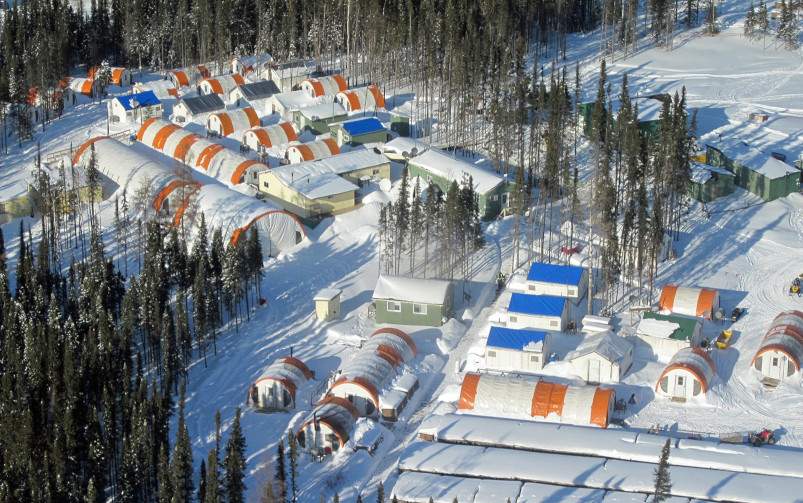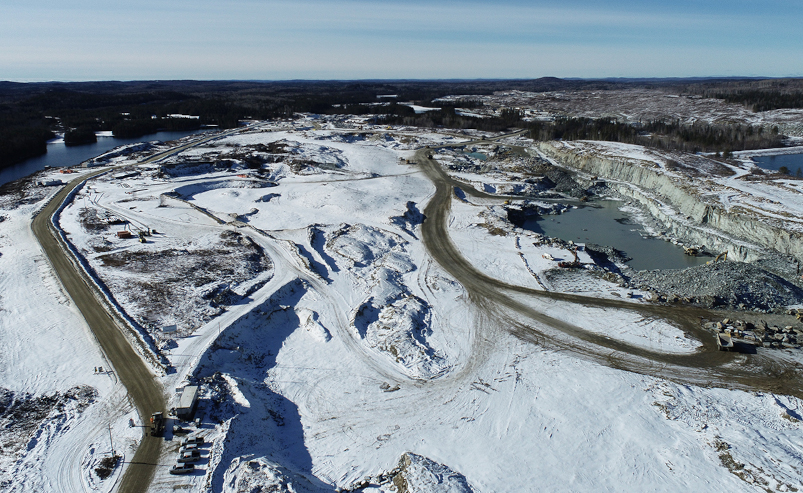The Society for Mining, Metallurgy & Exploration’s (SME) first virtual MINEXCHANGE 2021 conference kicked off on Mar. 1. Almost a year into the COVID-19 pandemic, keynote speaker Douglas Silver, an expert in mineral economics, opened the event with a presentation about looking past the pandemic and the implications COVID-19 will have on the future of the mining industry.
On the positive side, Silver said the pandemic has accelerated advancements in technologies such as video conferencing, streaming, webcasting and drone technology, which have made remote work and learning more efficient. Also, with fewer cars on the roads and planes in the air, the changes in transportation patterns have reduced carbon emissions and have possibly repaired some of the damage caused by greenhouse gas emissions.
Silver continued on with the environmental theme, drawing on findings published in the World Economic Forum’s 2021 Global Risk Report. He explained that three of the top five issues the report predicts are most likely to occur – and have the greatest impact on the world – are climate action failure, biodiversity loss and human environmental damage. “Those are three actions closely linked to the mining industry,” said Silver. “So, there is going to be a lot of pressure on us to do better and do more.”
Silver now wonders if environmental considerations will be incorporated by businesses and lawmakers (or just ignored) once governments begin to reboot their economies. Given the changes in people’s lifestyles since the start of the pandemic, Silver anticipates there will be a shift in which commodities are in demand and which prices are affected in the future.
“If more people work at home, do we need less commercial space? This can impact concrete, iron and copper [usage]. If we are driving less, we will need fewer fossil fuels, but would we also need fewer metals in our cars too?... With massive number of planes grounded indefinitely and routes cancelled, do we really need more aluminum?” asked Silver.
When it comes to the mining industry itself, Silver said COVID-19 has changed the way things are done and predicted that exploration will be hit hardest moving forward.
"Companies [now] have to do a cost-benefit analysis…[because] they need additional dollars for other corporate purposes, such as [hiring] additional medical personnel not only for the mines, but also at corporate where they are doing [COVID-19] testing, monitoring and recording,” he said.
Related: Aimee Boulanger details how the Initiative for Responsible Mining Assurance works to bring the mining supply chain together for the greater good
Silver suspects mining companies will reduce the number of countries where they operate due to some of them being too risky or too much of a hassle to work in because of transportation restrictions such as closed ports.
Additionally, governments dealing with debts increasing faster than economic growth ratesmight invest less in foreign-aid packages for emerging economies. According to Silver, this will cause tremendous stress on the recipient countries, causing them to either loosen regulations to incentivize foreign investors or enhance resource nationalism by increasing taxes, equity interests and royalties.
“In particular, I would watch the lenders [because] they are going to be a lot more circumspect,” added Silver. “I think… they are going to spend a lot more time looking at timelines, questioning them. They may also restrict funds from going into certain countries where COVID-19 is exacerbating the risk.” He explained this could jeopardize some projects, forcing mining companies to recalculate promised investments, costs and potential profits, and possibly cause projects that were once viable, to be put on the shelf for better days.
During the presentation, Silver also spoke about environmental, social and governance (ESG) standards and argued that they have more important implications in mining than COVID-19. He said investors are now prioritizing these standards and are forcing corporate behavioural changes to align with them.
Citing a quote by Klaus Schwab, founder and executive chair of the World Economic Forum, wrote in Stakeholder Capitalism: A Global Economy that Works for Progress, People and Planet, Silver said that the path forward after the pandemic is to adapt a stakeholder capitalism model. “We can’t continue with an economic system driven by selfish values, such as short-term profit maximization, the avoidance of tax and regulation or externalization of environmental harm. Instead, we need a society, economy and international community that is designed to care for all people and the entire planet.”
In demonstrating his full agreement with that statement, Silver continued with an admonition to attendees.
“Folks, ESG’s time has come,” he said. “It’s not asking us to reinvent the wheel; it’s really asking us to reorganize how we look and report things, and it is forcing us to realize we are part of a larger ecosystem, which includes more than the commercial aspects, it also includes nature and social considerations.”
Silver concluded his remarks by emphasizing that the mining industry needs to catch up quickly to social and environmental changes, elevate its best practices, invest in more research and development, cut back on underground mining and reduce greenhouse gas emissions.
"The mineral industry has amazing scientists and entrepreneurs. Once we define how we need to adapt, I have no worries that we will," said Silver.



